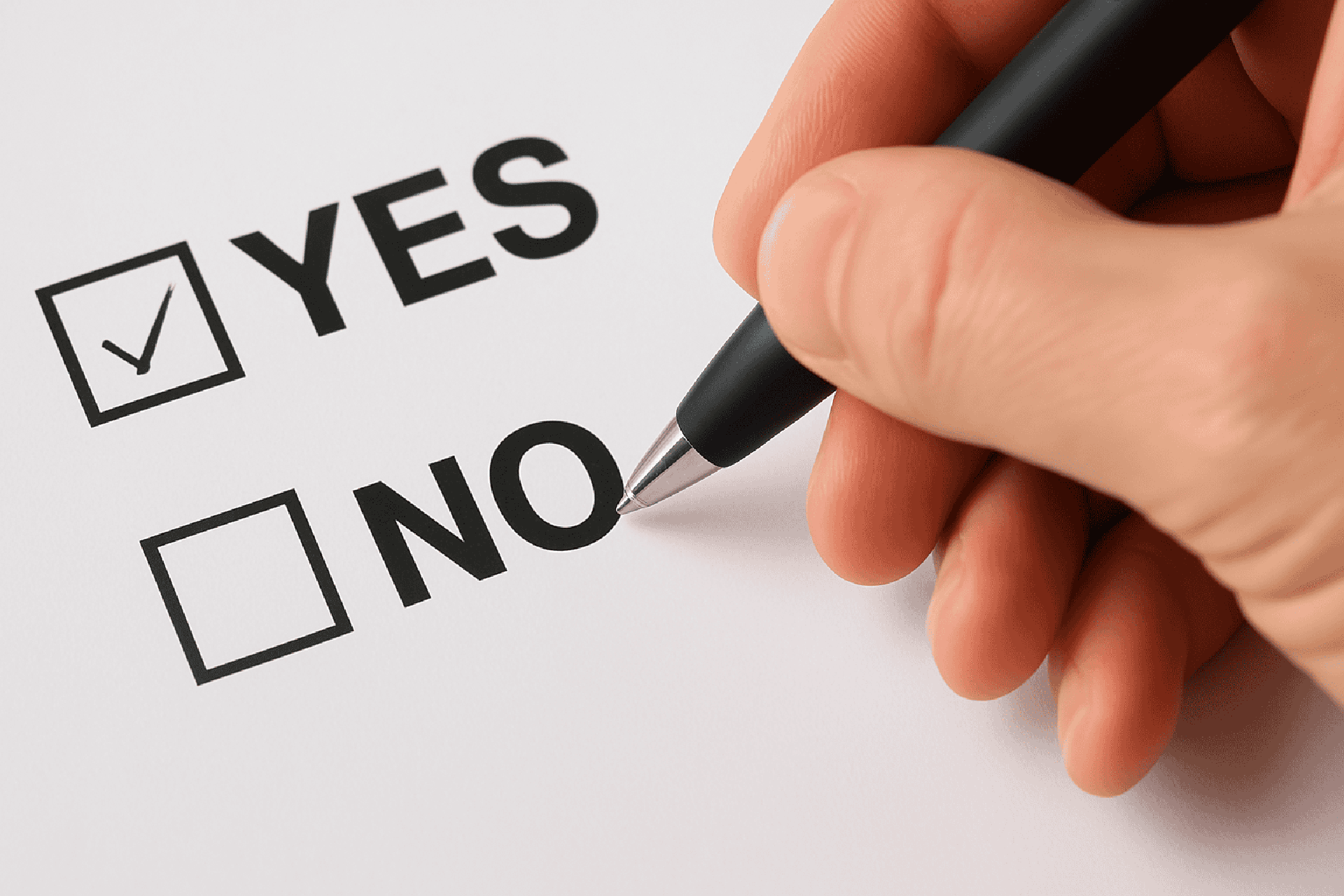These 11 criteria serve as a clinical tool but can also help individuals reflect honestly on their relationship with alcohol or drugs.
Confidential Self-Assessment
If you’re concerned about your use of alcohol, prescription medications, or drugs, ask yourself the following questions based on your experience in the past 12 months.
- Do you often use more of the substance or for a longer period than you intended?
[ ] Yes [ ] No
- Have you tried to cut down or stop using the substance but couldn’t?
[ ] Yes [ ] No
- Do you spend a lot of time getting, using, or recovering from using the substance?
[ ] Yes [ ] No
- Do you experience cravings or strong urges to use the substance?
[ ] Yes [ ] No
- Has your substance use caused you to fail to meet responsibilities at work, school, or home?
[ ] Yes [ ] No
- Do you continue to use the substance even when it causes problems in your relationships?
[ ] Yes [ ] No
- Have you given up or cut back on important social, work, or recreational activities because of substance use?
[ ] Yes [ ] No
- Do you use the substance even when it puts you in danger (e.g., driving under the influence)?
[ ] Yes [ ] No
- Do you keep using the substance even though you know it's harming your physical or mental health?
[ ] Yes [ ] No
- Have you developed a tolerance — needing more of the substance to get the same effect?
[ ] Yes [ ] No
- Do you experience withdrawal symptoms when the effects of the substance wear off, or do you use it to relieve those symptoms?
[ ] Yes [ ] No
Scoring: What Do the Answers Mean?
Count the number of “Yes” responses:
- ✅ 0–1: No Substance Use Disorder
- ⚠️ 2–3: Mild SUD
- ⚠️⚠️ 4–5: Moderate SUD
- ⚠️⚠️⚠️ 6 or more: Severe SUD
Note: A formal diagnosis must be made by a qualified health professional, but this self-check can be a useful first step toward getting help.
Understand the Diagnostic Criteria Used by Mental Health Professionals
The Diagnostic and Statistical Manual of Mental Disorders, Fifth Edition (DSM-5) outlines specific criteria to help identify whether someone may be struggling with a Substance Use Disorder (SUD) — and how severe it might be.
What to Do If You're Concerned
If you answered "Yes" to 2 or more of the questions, it may be time to reach out for support. Many people recover fully with the right treatment and care.
Contact Us
If you're not sure where to start, our nonprofit can help guide you to confidential, affordable options in your area — including programs that accept Medicaid.
download a .pdf of the questionaire
